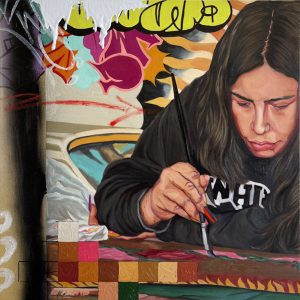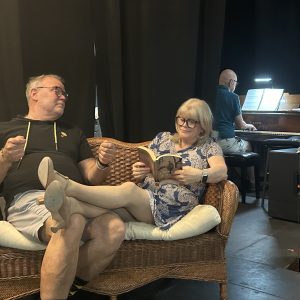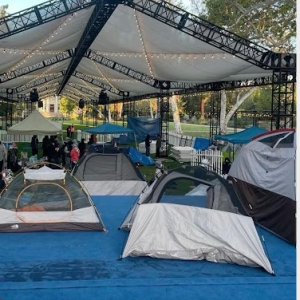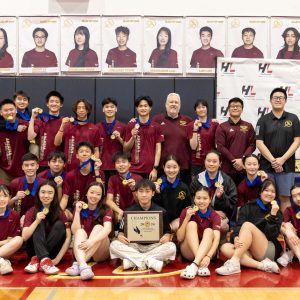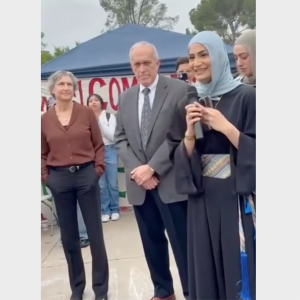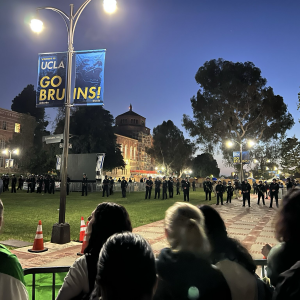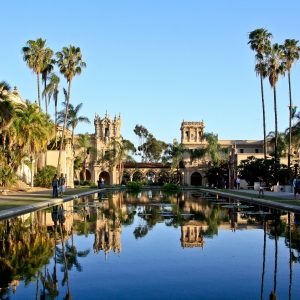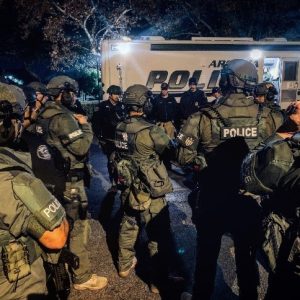 View Winners →
View Winners → Institute for Educational Advancement Serving the Needs of Gifted Children


ACADEMY students learn Chemistry in the kitchen. – Courtesy photo
By May S. Ruiz
Each child is different. All parents know that and treat every child for the individual that he or she is. But when children fall outside the spectrum, parents are at a loss about what to do.
Elizabeth Jones saw firsthand how gifted children could fall through the cracks because their needs aren’t being met. She relates, “While completing my Masters at USC, I was working in a special day classroom at a residential facility for students with learning and behavioral problems. I found a child who had been placed there when he was actually profoundly gifted; he was basically misdiagnosed. That got me thinking that clearly he wasn’t the only child who has been put in the wrong place because people didn’t recognize what made him different.”
“That led me to conduct more research and start looking into how children learn differently,” continues Jones. “I then worked at Johns Hopkins University as Associate Director of the Western Region of the Center for Talented Youth. There I focused on identifying gifted students from underserved backgrounds; providing emotional and social support for them; and educating teachers and parents on these children’s needs.
In 1998, I left Johns Hopkins and established the Institute for Educational Advancement (IEA), a non-profit organization dedicated to the intellectual, creative, and personal growth among gifted and high-potential youth. We are committed to the development of the whole child by providing engaging learning experiences that promote optimal challenge, mentorship, exploration of ideas, and recognition of personal potential.”
Based in Pasadena, IEA offers four different programs that directly address the needs of the gifted child. Jones explains, “Our ACADEMY is for children from kindergarten to 8th grade, an after-school and weekend, and during-the-day program for home-schooled children. We match grad students from Caltech who are professionals in their field and take them to the classrooms where they bring their work into a new arena. It’s delightful to see a Caltech graduate student working on microbiology with a seven-year old – the grad student remembers why he’s so thrilled and the seven-year old is equally enamored with the idea that she could be a real scientist and do this cool thing. It’s a very exciting and neat way to motivate.”
Adds Jones, “So many of these bright minds are so different from their peers they don’t really have a social network. They don’t feel accepted because they have a unique vocabulary; they look at the world differently; they ask more questions; they’re more curious. It’s hard for them to find that group of friends or a network of folks that they feel comfortable with. So here they are, talking to a grad student who understands why they’re passionate about an interesting topic and are around other kids who are equally enthusiastic about that. It’s a very, very exhilarating dynamic and it helps get that child develop a positive yet not overly exaggerated sense of self.”
ACADEMY classes are based on what IEA administrators gather from talking to kids; they find the right instructor and create the curriculum around that. They’re semester-long enrichment courses, genius days, mini lectures, and workshops available at two locations – San Marino and Sierra Madre. Offerings vary by semester: fall, winter, spring, and winter.”
Summer session is ongoing at San Marino High School and courses include: Algorithms for beginners with Nathalie Blume. Algorithms are widely used in computer science and bioinformatics, they frame research in psychology and in zoology, and they are what allows robots to move, search engines to search, and AIs to be autonomous. An Ancient Egypt course taught by Alessandra Santucci takes students on an experiential journey across 3,000 years of history and explores how it developed and why it came to an end. In ‘Dissolving Boundaries: The Intersection of Art & Poetry’ Meg Shevenock and her class study artists and writers who seamlessly merge their classified genres. Toby Jacobrown and his students take a survey of the most encouraging and cutting-edge developments in biology, ecology and medicine in a class called ‘How to Save the World’. He also teaches a course on ‘How to Write Scripts Like the Greats’ where he demonstrates how emulation of the greats was how writers learned their craft before the 20th century. He also discusses with his students how to pitch their work to a producer.
IEA offers YUNASA, which is the Indian Lakota word for balance. Describes Jones, “It’s a camp where we take children for a traditional camp experience – archery, campfires, water activities. But we also do a lot of work on how to calm the mind through visualizations and mindfulness, which help the child focus energies in positive ways. For so many of these young people, their brains work so quickly that they have trouble sitting, focusing, or even completing a specific task. Their anxieties get in the way. What makes this program unique is that we have the most eminent folks in the field of education who come together as facilitators for a particular program.”
“Our EXPLORE is an apprenticeship program where we partner high-potential and gifted high school students with distinguished professionals in the field with whom they work side-by-side for six weeks during the summer to accomplish real world tasks. We have 17-year-olds who’ve completed research paper working with somebody on a specific project or in a lab in a children’s hospital researching diseases,” Jones says.
A program Jones is extremely proud of is the CAROLINE D. BRADLEY SCHOLARSHIP. She states, “It is the only merit-based scholarship in the country. We provide 30 students per year with a high school experience where we match individuals with the best learning environment for them – it could very well be an independent or a public school. It really depends on what that child needs in the moment to actualize his or her intellectual potential. We sponsor students for four years throughout their entire high school career. It is our most unique and, perhaps, most impactful initiative in terms of long-term support of young people.
It has been a really successful initiative. We started this program in 2002 with five students; now we’re identifying between 25 and 30 a year. We have about 120 scholars in high schools all over the country who get free tuition. The funding follows the student, we don’t fund the school directly. It keeps us and the school nimble because we have to research what’s really best for that child every time we have a new youngster who comes into the program. Those schools who have enjoyed having these bright young minds on their campus have to keep up their standards. In addition, it means those independent school’s funding can go farther too; it’s a great way of spreading scholarship money.”
Jones explains, “It is funded by Sarah Barder, the niece of Caroline Bradley and a long-time supporter and mentor of mine when I was at Johns Hopkins University. She supported us when we started IEA. She appreciated my passion for recognizing the unique needs of gifted youth and advocating for an educational system that provides opportunity for children to learn something new every day. We share a common commitment to ensuring that young people avail of the most appropriate learning environment for them to grow and become happy, successful citizens.
We’ve had over 100 alumni and one student from our original class has joined our Board. We have a very large networking program that’s national in scope. While these students have different backgrounds, there’s one thing they have in common – they tend to give back to their communities. They experience something remarkable and they act on it by contributing back wherever they happen to be; these are the kids who will help solve problems in society in the future. We’re so grateful to have stewardship of this particular opportunity.”
“IEA has a singular imperative – to advocate for the gifted child,” asserts Jones. “We educate the public that gifted children are underserved and there is a need to pay attention to them. Not only because they’re amazing little people – everyone deserves our attention – but because they’re being taught things 30 percent of which they already knew before coming to class. They don’t have access to challenging content on a daily basis; they spend their days in a state of boredom. Yet schools don’t have the resources or knowledge base to serve them. It’s important that we recognize that there’s a need.”
For gifted children and their parents, it’s a godsend to have someone champion for them. Jones and her organization will see to it that these young people’s minds are developed to their fullest potential.













